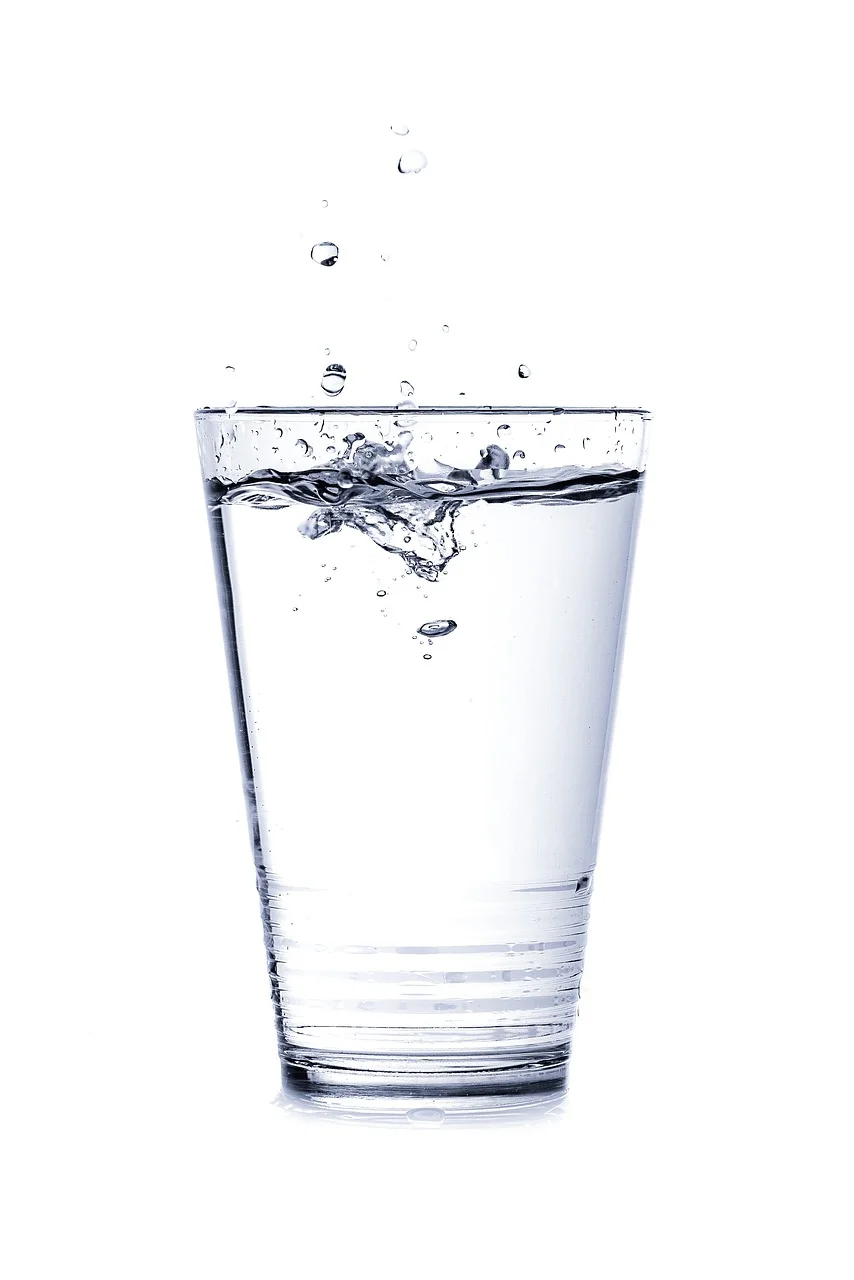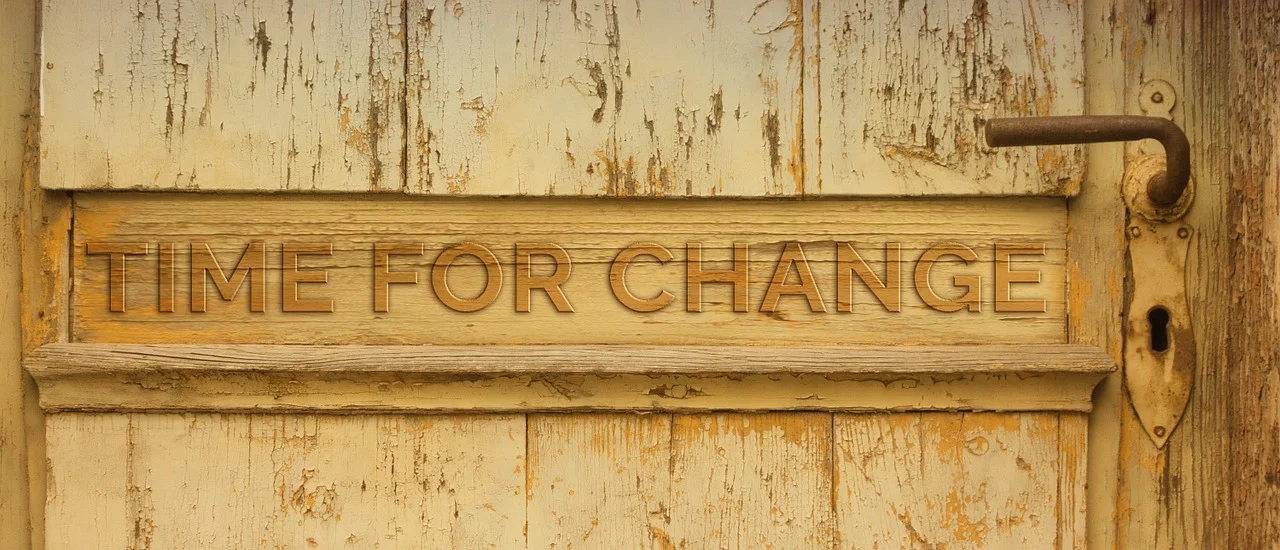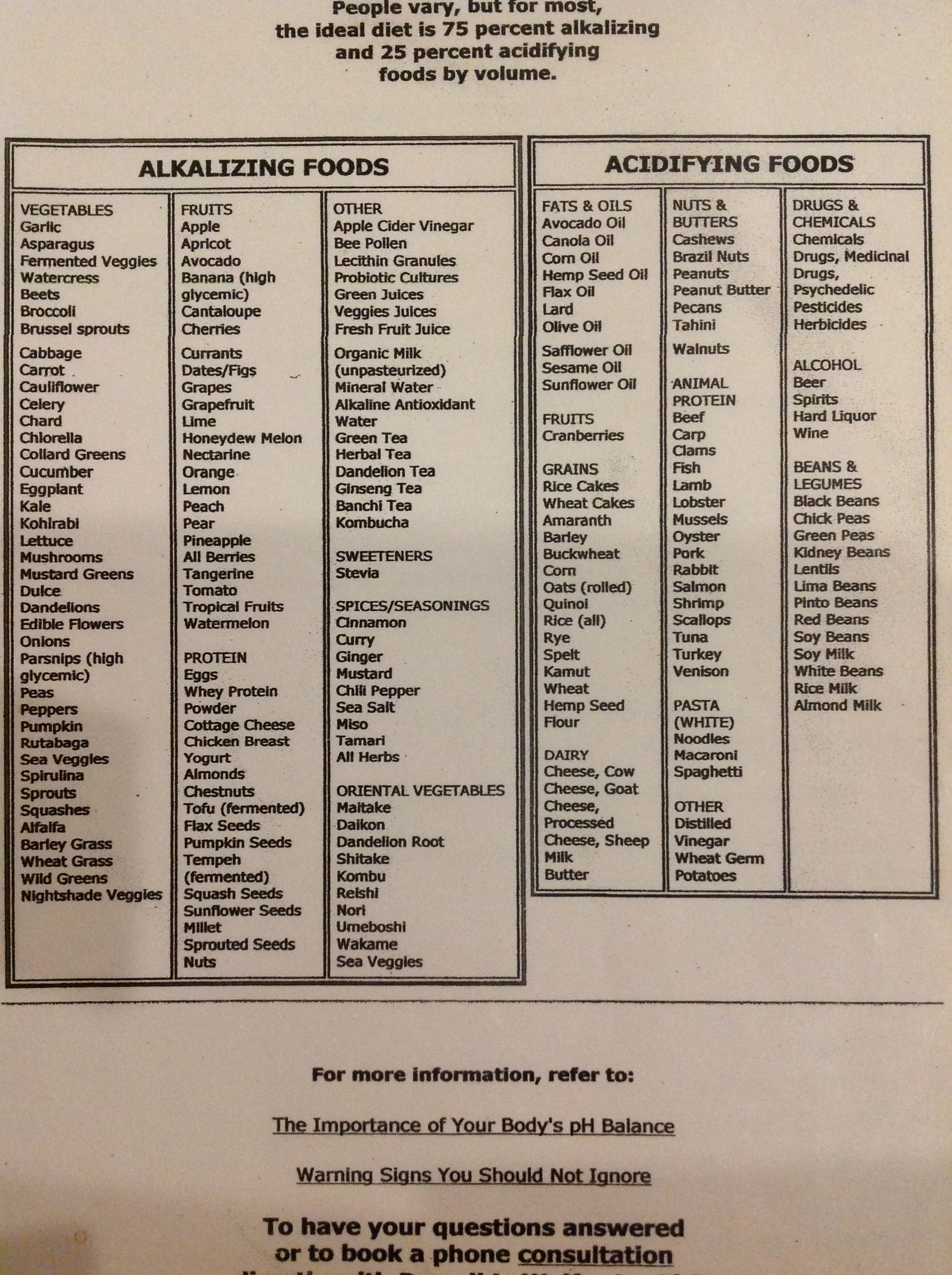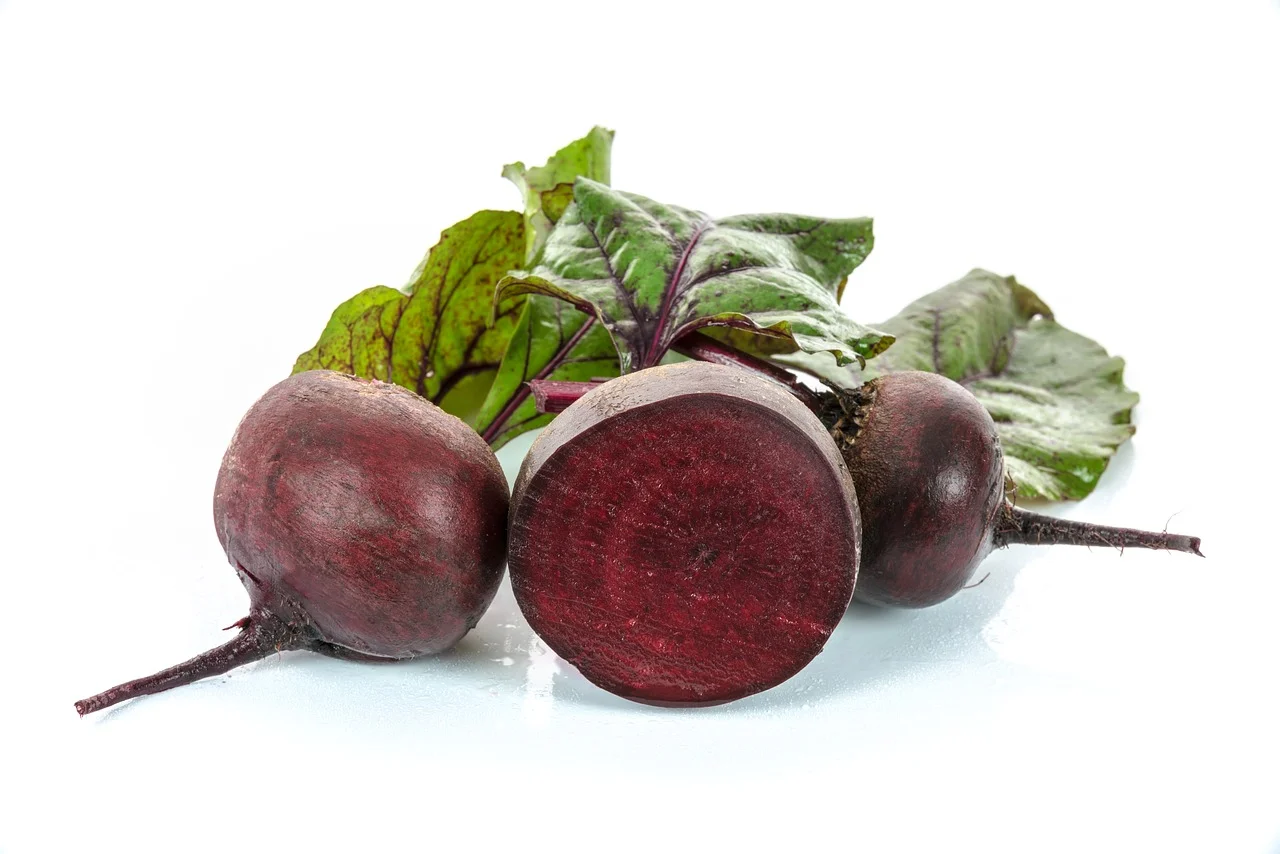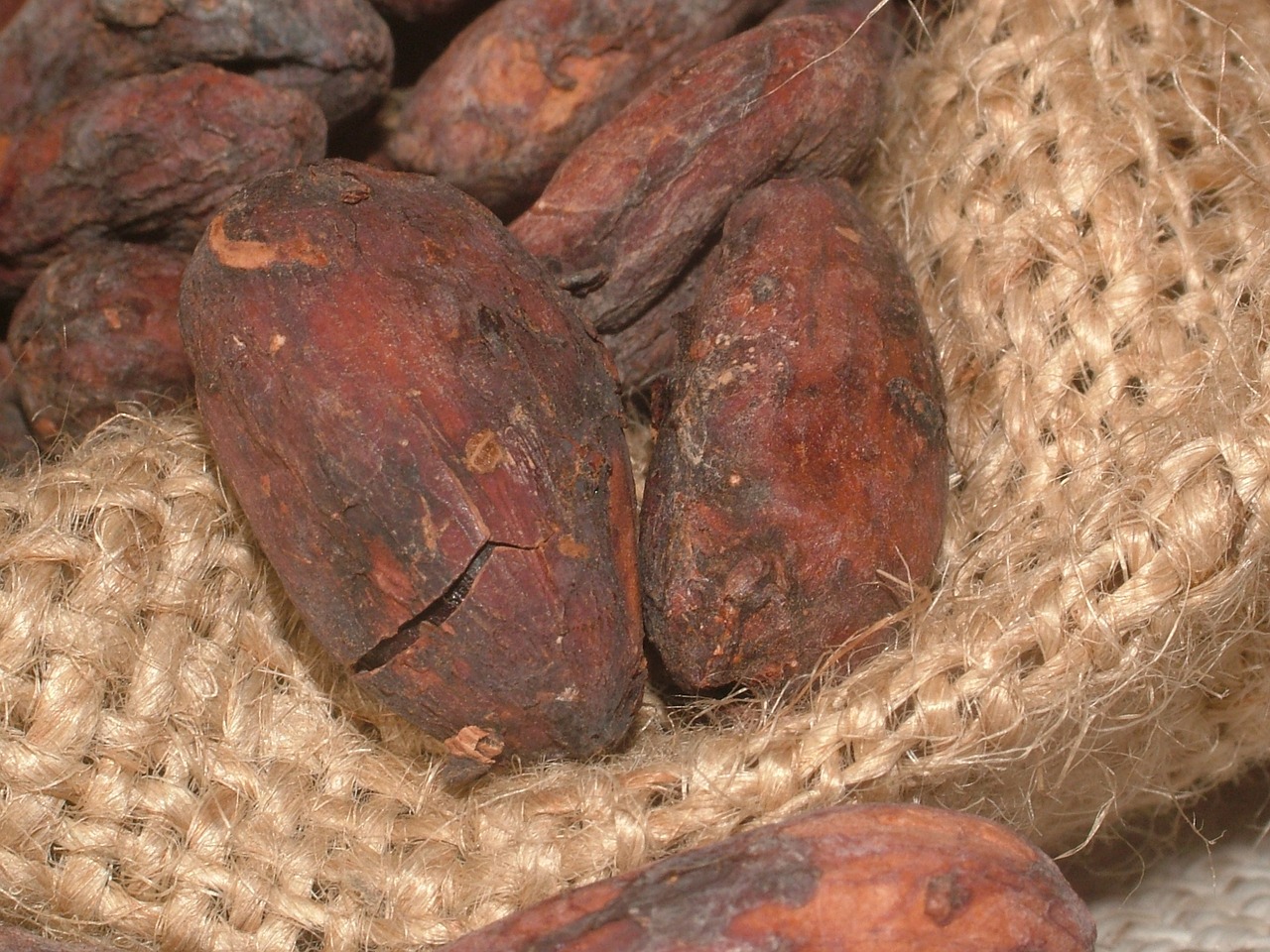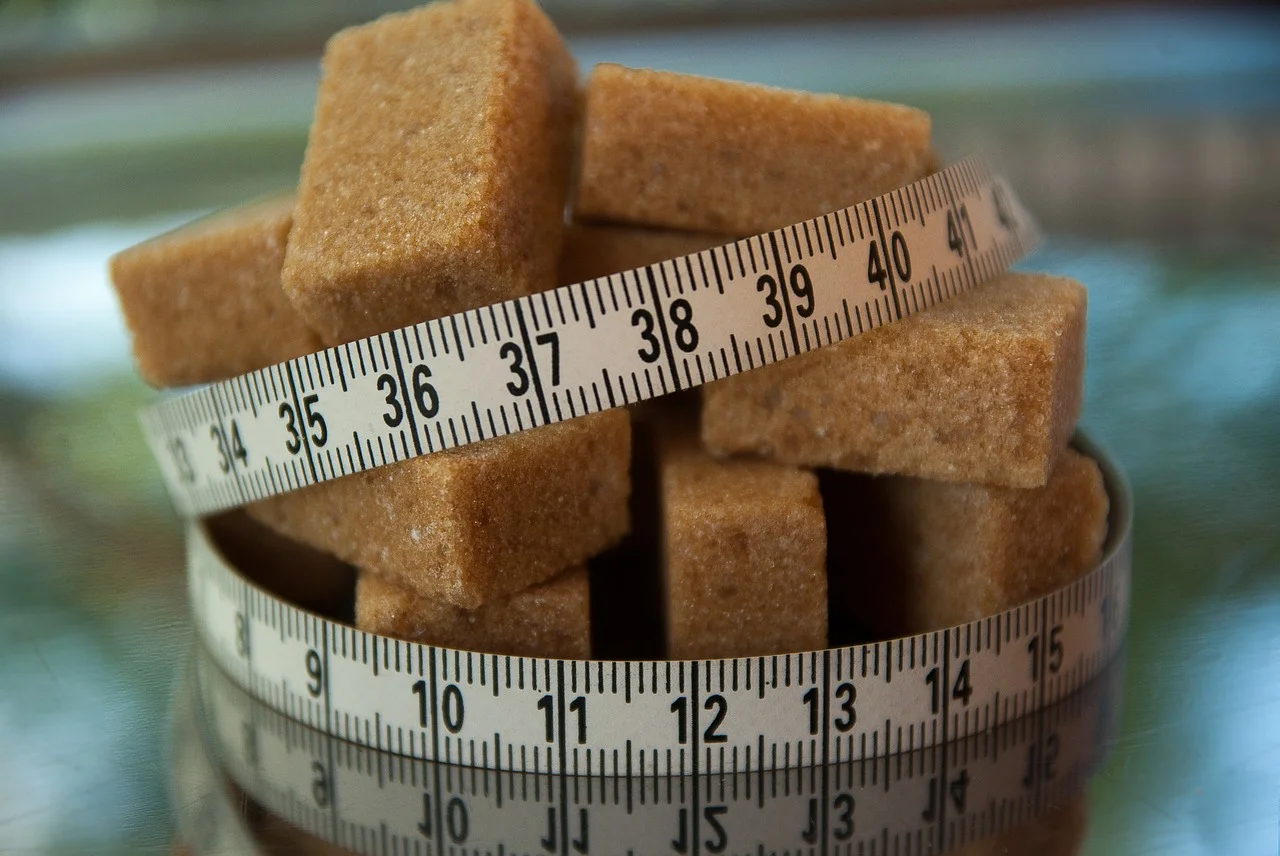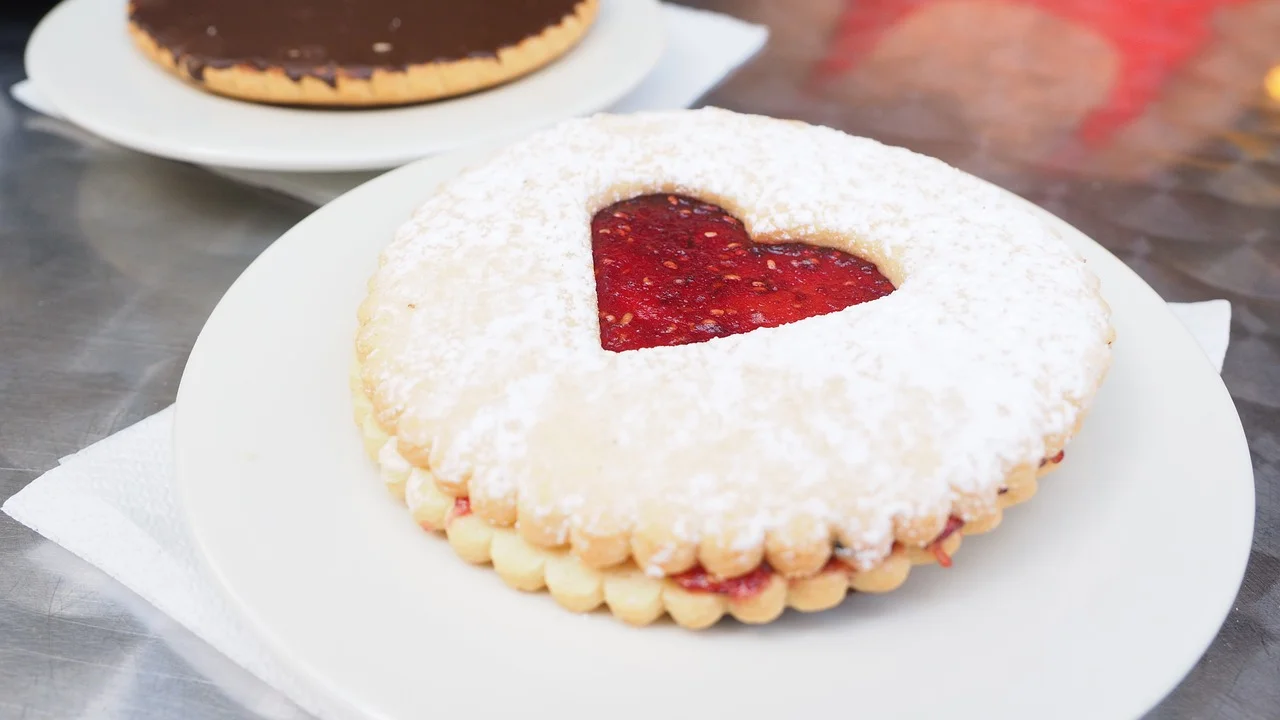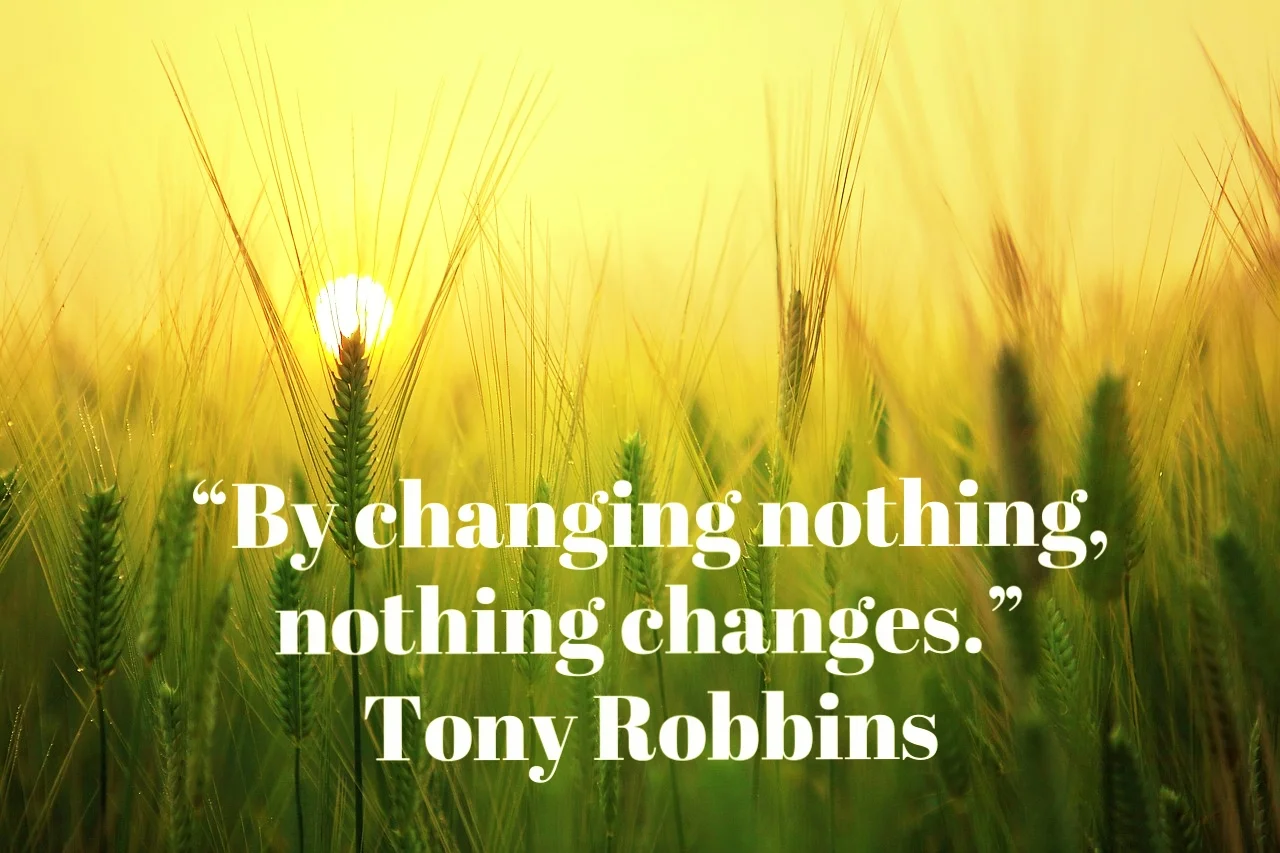Finding the Joy
Life is difficult and each of us will experience a season in life when joy seems unattainable. We are left wondering if God is listening, does He care, what does this mean. During the holidays the family unit is placed with high expectations on gathering and making memories. It’s an opportunity to take time out of the normal schedule to visit with loved ones. Difficulties arise
Life is difficult and each of us will experience a season in life when joy seems unattainable. We are left wondering if God is listening, does He care, what does this mean. During the holidays the family unit is placed with high expectations on gathering and making memories. It’s an opportunity to take time out of the normal schedule to visit with loved ones. Difficulties arise when members of a family are no longer present at the dinner table. Others still dread seeing their family due to fractures and hurts from the past. The emptiness could be overwhelming.
It’s also one of the busiest seasons of the year with a host of commitments, purchases, and demands, one can feel…well, exhausted and wishing Christmas were over. Joy is defined as a feeling of great pleasure and happiness or rejoices. Is that how you are feeling right now? Are you feeling happy? How can someone find joy in the midst of this hectic season you may wonder?
During the next year, I will be learning to be a health coach. One of the things I have learned so far is that health begins with other things that are not food…such as relationships. A loving relationship can bring joy; in contrast, one that is toxic brings turmoil. Here are some ways to try and find your joy:
- Pray. Deep relationships with Christ will open doors that will otherwise stay closed. He cares for us and wants to know every detail we are dealing with. He has the answers and there is something wonderful about turning our troubles over to Him.
- Be grateful. Practicing gratitude is important in finding joy. Be thankful for the many blessings in your life. Everyone has blessings. Living in the United States is a blessing. We don’t have to worry about bombs going off today. Be thankful for family, food in the refrigerator, work, health, family, and the lists go on. Even a warm house on a cold winter night is a blessing. Think on these things throughout your daily, and joy will come.
- Say “No.” Self care is important. We are conditioned to help others, lend a hand, give care to family, work hard, etc. We sacrifice ourselves and end up exhausted and sick. Take time for you. You are important to many people….they will understand. Get enough rest so your body can deal with all the things that come at it; and get a massage.
One more thing to consider is that constant negativity will steal not only your joy, but the joy of those around you. Our brain naturally moves toward negativity. We find fault and judge others, because that’s our tendency. That negativity creates anxiety in both parties, which blocks access to higher cerebral functioning. We will then have difficulty with problem solving and ultimately our relationships with others will suffer. You may know someone who is negative and you may know someone who is positive. Which person do you want to spend your time with? How do people view your position? Not sure? Maybe you should ask someone you are close to.
Joy is obtainable. “Finally, brethren, whatever things are true, whatever things are noble, whatever things are just, whatever things are pure, whatever things are lovely, whatever things are of good report, if there is any virtue and if there is anything praiseworthy—mediate on these things. The things which you learned and received and heard and saw in me, these do, and the God of peace will be with you.” Philippians 4:8-9.
Health bite: Joy is inner peace...find yours
Hymn of Response
Ever since I can remember, I’ve gone to church. There was a time in my life I “took a break” to test what I believe, and found what I was looking for. If you were like me, as a child, going to church was much like making the bed or doing homework. It was just something I did because it was expected. I was raised to respect my parents, and I was an obedient child. While others my age were
Ever since I can remember, I’ve gone to church. There was a time in my life I “took a break” to test what I believe, and found what I was looking for. If you were like me, as a child, going to church was much like making the bed or doing homework. It was just something I did because it was expected. I was raised to respect my parents, and I was an obedient child. While others my age were experimenting with smoking and drinking, I was at home with family, shopping or hanging out with my girl friends. I guess I was a “goody, goody.” Mostly, I was afraid of my dad! He was tall and a superintendent of a prison. He had my respect, and I didn’t want to displease him.
Our family went to church just about every Sunday, and each one was much like the last, prayers, hymns, offering, sermon, and finally the hymn of response. It’s interesting that the hymn after the sermon is always called the hymn of response. It’s the congregation’s way of admitting our flaws and sins. Humbling ourselves and showing gratitude to a God who loves us anyway. It dawned on me how the hymn of response should be practiced everyday. Not that we shouldn’t hear a sermon each day, but with our current level of life, that would be difficult to obtain. We live in a reactive world. This culture says to “get even,” “don’t judge me,” “don’t tread on me.” I say the hymn of response is one that says be kind, considerate, and loving to everyone. Praise the Lord in ALL ways and in ALL situations.
The car won’t start, praise the Lord, because He knows what’s best; and there is something to learn. You got a raise today! Praise the Lord, because now you can be more generous! This practice will take time and discipline. The response to situations is watched by others around us. Children watch their parents driving skills. A reactive, aggressive driver will raise a reactive, aggressive driver. A disrespectful parent will raise a disrespectful adult. A parent who shows patients and kindness toward a stranger will raise an adult who will be the same. Are you seeing a trend here? We are placed here on earth to praise and worship our Lord, Jesus Christ. He owes us NOTHING and we owe Him EVERYTHING! This life is only temporary. Live each day to please God…you’ll be surprised with the amount peace you will find in your heart!
Health-bite: Respond with gratitude in ALL situations
All Water is NOT Created Equal
Sometime BC (before children), my husband and I drove across the mountain to a larger city. I needed to stop, so he pulled into a convenience store. When I got back into the car, I said to Joe, “You’re not going to believe what I just saw! There was bottled water FOR SALE! Can you believe someone would buy water when it’s FREE?” That seems decades ago…well it was decades ago; my how things have changed.
The United States has some of the safest water in the world. Treatment centers test the water prior to allowing it into the public for consumption, yet the population at large purchases bottled water. Other countries in the world are certainly not as fortunate to experience clean water, but we can actually drink ours from our kitchen or bathroom sink.
According to the Beverage Marketing Corporation, in 2014, the U.S. bottled water market neared 11 million gallons and Americans consumed 34 gallons of water per person. By the end of the decade, bottle water is expected to be the largest beverage category by volume in the United States. Water is free from calories, artificial ingredients, and our body needs this important substance for health. Are you wondering why I’m discussing water yet? What most people don’t realize is all water is not equal.
Dasani and Aquafina are manufactured by Coke and Pepsi, respectfully. Both have a pH under the optimal standards of 6.5 – 8.5. We want to be as close to a pH of 7.0 as possible. When the pH falls below 6.5, there is an acidic attack going on in our mouth. This attack disrupts enamel and root surfaces raising the incidence for cavities and gingivitis. Soft drinks have a pH range from 2.38 to 4.75.
Below is a table that lists the pH of some of more popular waters sold:
BRAND pH
Vitamin water 3.4
Propel Zero 3.5
Aquafina 4.0
Dasani 4.5
Perrier 5.5
Poland Spring 5.8
Crystal Geyser 6.0
Deer Park 6.3
Smart Water 6.5
Great Value Walmart 6.5
Arrowhead 6.8
Evian 7.0
Fiji 7.5
As we get older, our mouth becomes drier. The tendency is to drink water to “wet our whistle.” Medications can make the mouth very dry as does smoking. When the mouth is dry, bacteria stick to the teeth. Many people will drink water to help the dryness, but what choice we make can be a difference in our health. To fight off disease, our bodies need to remain more alkaline. The typical American diet sets us up for an acidic body, and then we drink some acidic bottled water. The body is then ripe for disease to take place. If bottle water is what you do, then here a few tips to bring it back to basic. Place a half teaspoon of baking soda in the water or squeeze the juice of half a lemon into the bottle. Both will raise the pH to be more basic and healthy place. The best choice, in my opinion, it to purchase a good-quality, stainless steel or glass water bottle and fill it from either the sink or filtered refrigerated water. Water used to be free, but we have turned the corner here in American, making water one of the best selling beverages. No wonder Coke and Pepsi wanted in on this market.
Heath bite: Not all bottled water is equal.
New Ways
What if you were to learn something new that could prevent disease....would you change your habits? What role does ease and convenience play into behavior change? Each day, news reports suggest we add this or avoid that to stay healthy or avoid problems, yet we are still unhealthy as a nation. How often do we change our habits in light of this information? Again, will it be an inconvenience?
Do you find disease, hospitalization, chronic illness, or pain convenient? Does spending hundreds or thousands of dollars on medical costs and prescription drugs convenient? Are you rolling the dice that problems won't happen for you? Chances are at some point in life there will be an "inconvenience" of disease. We've been lied to by so many agencies and commercials about health that now we are a sick nation. Obesity is an epidemic, heart disease with all the prescription drugs taken, is still the number one killer. How can this be?
Are we on a wheel spinning around the medical world hoping to get well, only to have more prescriptions drugs given to us to take care of the side effects from the last pill?
I think medical doctors genuinely care and want to help people. They have to be caregivers from the heart. Doctors spend a great deal of time and money in their chosen careers. Researching and studying to help people or even cure diseases. Yet, I wonder how many doctors become discouraged because people seem to get sicker instead of better. More tests, more drugs, and more disease. What is the missing link? Why aren't people, as a whole getting healthier?
Could the missing link be nutrition? The medical community, as a whole, has little to no nutritional education. Recently, I was talking with a PA who works with a local cardiologist, and we were having a conversation about reading and hobbies. I revealed to her that I was reading a much as I could about healing, nutrition, and diseases. She told me that many of her heart patients ask her what she thought they need to be eating now that they have heart disease, and what she said shocked me! She told me she didn't know what to tell them! She had NO, ZERO, NADA, classes on nutrition! Does the daily dose of drugs replace a healthy diet? It seems the doctors are saying, "Keep eating what you want, because you are taking drugs now. No worries....you'll be fine!"
There as been repeatable scientific data that shows the reversal of heart disease through a proper diet. Unfortunately, most people don't even know what a healthy diet looks like. There's more to it than granola bars, yogurt, and salads with lots of dressing. Eating a whole-plant, vegan lifestyle has been shown to greatly reduce disease and in some cases reverse disease.
The most difficult part of adapting this change in the one in the mind. Getting the mind on board and creating a discipline for a plan will take some time. Take a 30-day challenge to give up something that could be harming your body. Maybe its meat, dairy, or sugar. Choose to give up only one for now. After two weeks, you will feel different....better......healthier. It's worth the inconvenience of a better lifestyle to avoid the inconvenience of disease.
Health-bite: You are what you eat
Seeking Healing

The definition of healing is the process of making or becoming sound or healthy again. Healing is a process indeed, yet don't we want things instantly? The body and mind can seem to become ill quickly, however, the healing can take weeks, months, or years. Many times, while looking back, we can see signs of illness that was not picked up on in the beginning until the illness was at a point where it altered our way of life.
Healing is a process that does take time, energy, commitment and discipline. All of these things are also required too for a healthy relationship with God. As people, we are creatures of habit...more often bad habits. We choose foods that are unhealthy, we stay up way too late, and we only talk to God when we want something. Pathetic isn't it? While it's true we will all die, it's how well do you want to live while you are alive? What purpose does Christ have for you? Are you using your skills and talents to serve Him?
The more I read, the more I realize I have a lot to learn. There is growth to be done. In some ways, I think God continues to teach and work within us until we die...that is if we allow him. I certainly have gone my own way and thought I knew best. That is until I came crashing down. This journey called life takes time, patience, and lots of prayers. Daily devotion to our creator, basking in His glory, giving credit when credit is due are all ways to honor the Father of the universe.
Healing of the body, mind and spirit is also a journey of faith, commitment, and dedication. No one escapes pain and disappointment in this life, but how we react to what comes our way matters. "And we know that God causes all things to work together for good to those who love God, to those who are called according to His purpose." Romans. 8:28. Trust the One True God who will give you strength. Spend daily time at his feet and seek comfort. He will heal all the brokenness.
Health-bite: run to God for healing of mind, body and spirit
The pH Balance
Balance. According to the dictionary, is defined as a condition in which different elements are equal or in the correct proportion. Our body is constantly striving for balance. The pH is a measurement of acidity or alkalinity in the body. Our system constantly strives for balance of pH. A healthy body pH is between 6.0 and 7.5.
An acidic body will bring about problems such as weight gain, headaches, depression, back pain, constipation, muscle stiffness, allergies, and aging skin. A low pH in the oral environment leads to tooth erosion and decay. Over acidity can also bring serious health problems like osteoporosis, arthritis, diabetes, inflammation, cancer, heart dishes and colon disease. When our body is constantly in a state of over-acidity, nutrients are taken from the bones, muscles, and organs in an effort to neutralize the acids and restore balance. Over time, this leads to a compromised immune system.
Scientist agree that to maintain health, our diet should be 60 percent alkaline forming foods and 40 percent acid forming foods. Unfortunately, the typical American diet is 80 percent acid forming foods and 20 percent alkaline forming foods. Inflammation and disease thrive in acidic bodies. When we are on the go, fast food, processed and pre-packaged foods are what we go for. We are setting ourselves up for big problems.
Below, you will find a chart that lists foods in both categories. Remember, our body wants balance, so choose foods from each side in the 60/40 ratio. You may be surprised to find lemons on the alkaline side. While chemically acidic, lemons in the body are extremely alkaline in the body. The pH of the lemon is 9.0 and sits on top of the chart for alkaline foods. Squeeze some lemon in your water throughout the day to help you maintain the pH balance you need.
Health-bite: Alkalinity leads to a better healthy-style
Beet it!
Beets, one of the most nutritious vegetables for us, doesn't usually get rave reviews at the supper table. For some people it's the color that is off putting, while for others it's the texture. Consumers eat more canned beets than fresh, and of the fresh, usually without the tops on them. Research tells us that the tops of the beets contain more antioxidants that the roots themselves. Most consumers who do purchase their beets with the tops on, once home, cut them off and throw them away.
Even without their greens, they are among the healthiest of all commonly eaten vegetables. Their sweet taste has a low impact on blood sugar, a good source of fiber, folate, and potassium. They have nine times more antioxidant properties that the typical tomato and fifty times more than orange carrots. Beets get their red color from betalains. Betalains are proving to be good cancer fighters. In a 2009 test-tube experiment, beet juice blocked the proliferation of human cancer cells of the pancreas, stomach, prostate, lungs, and brain by 85-100%. It was also found that those eating beets on a regular basis had a lower risk of cancer, cardiovascular disease, diabetes, obesity, and diseases of the digestive tract.
Beet leaves are one of healthiest greens you can buy. With seven times more antioxidant than romaine lettuce, they are on the same level with kale in terms of overall nutritive value. Use the greens in salads, substitute for spinach in recipes or serve them with the beets themselves.
Purchasing beets with their leaves still on will likely mean they are the freshest in the store. Once the leaves turn yellow, the produce manager will cull them and repackage the roots for sale. Choose beets that are deep red, as they will contain more betalains than those that are lighter in color. Canned beets are a good choice too. Even though the are less flavorful than the fresh beets, they provide more antioxidant value.
Beets could even help athletes perform better. A 2012 British study determined that fit men and women who had eaten a serving of whole beets daily for several days could run faster than they could when they had eaten a serving of other vegetables. Interestingly enough, with these findings, a number of British athletes who competed in the 2012 Summer Olympics drank beet juice rather than Gatorade before their events, including Mohamed (Mo) Farah, who won the gold metal for the men's five-and ten-kilometer races.
Health-bite: Beets, it's what should be for dinner
BAYERing All
Pharmaceutical companies make medicines to help people. Their interest is in allowing people to live longer, happier lives. If you believe these two statements then you shouldn’t ready anymore of this post.
Bayer is most known for its aspirin. The company has done a great job with name branding. If someone were to say aspirin, the immediate thought is Bayer aspirin. The Bayer pharmaceutical company is a German company founded in 1863. They manufacture veterinary drugs, women’s health products, over-the-counter drugs, diabetes care, pesticides, along with polymers and adhesives. The company is worth over $18.57 billion.
Even though best know for its aspirin, Bayer also trademarked heroin in 1898. It was sold as a cough suppressant and a non-addictive substitute for morphine. They also created Phenobarbital and Cipro (antibiotics) and Yaz (birth control). In 2014, Merck’s consumer brands like Claritin, Coppertone and Dr. Scholl’s were purchased by Bayer. Bayer also develops genetically modified crops and pesticides. What's next will shock you.
Before WWI, Bayer had business in the United States. Because of the conflict, ties with Bayer pharmaceuticals were cut. What most people don’t know about this company is their role in WWII. During the war, Bayer participated in Nazi war crimes. IG Farben, that included BASF, Bayer, Heochest and other German chemical and pharmaceutical companies, was intimately involved with the human experimental atrocities committed in Auschwitz. Prisoners were “purchased for disposal” by the pharmaceutical giant, according to the Auschwitz files. As a matter of fact, their facility in Auschwitz was built by some 300,000 concentration camp slaves. Once the facility was finished, the workers were disposed of. To date, no apology or compensation has been made to the survivors or their families. Those prisoners that some how made it through the experiments, live with the results all those years ago.
After the war, Bayer became independent of IG Farben; and in 1978, Bayer was once again in the United States. This information is difficult to conceive. How can a company, who is suppose to help people, dispose of people so freely? Can money really be the root of this evil? Yet no one speaks of these facts in our history classes. Perhaps it’s too difficult to speak about. It was difficult for me to read about them and then to think about it again as I write this post. Consumers have purchasing power, and I will no longer support a company like Bayer or their subsidiaries. Whenever possible, go a natural way to heal yourself or a loved one.
Health-bite: know about the companies you support
What the health?
The life span of the average person in the United States has significantly increased over that last century. Medical research and medications have made it possible to treat disease and provide longer lives for the sick and elderly. Diagnosis, treatment, and medical coverage have allowed patients to extend their lives, but at what cost?
Long life, does not necessarily mean quality life. Living to the age of 90 or above seems wonderful, unless the last 20 years were at the nursing home with the inability to communicate due to a stroke. No one dreams to be placed in a nursing home. As a matter of fact, we all want to avoid them anyway possible. Even visiting someone in there can be depressing.
Being independent is freedom and brings a certain quality of living we all hope to achieve. So let's talk about having a long health span. If we can achieve both a long life span and health span, then that would be golden. Unfortunately, odds are not in our favor with the current dietary recommendations. With a heavy emphasis on breads and grains, the waists bands will continue to expand along with the diagnosis of disease. Consuming processed and pre-packaged foods is definitely contributing to this epidemic. To lengthen our health span, requires more work in the kitchen and more planning in meal preparation, but the payoff is well worth the effort!
For Christmas, I received a book entitled Eating on the Wild Side, by Jo Robinson. In it, she outlines how our current food industry has transformed away from the nutrition once found in foods into food that is more sweet and less nutritious. Consumer demand has forced food scientists to continue to alter foods that people will buy. What we want is sweeter food. With this demand, plants no longer contain the necessary nutrients to fight off disease.
Many of our wild foods are so nutrient dense, it could prevent and even possibly cure cancer. Still, many of today's food still have the nutrients to fight off disease, but know which one to purchase is key. The other factor is this: once vegetables and fruits are picked, the nutrient content begins to expire. Picking food at its ripest and then consuming it quickly will allow the body to gain the most nutrients possible to stay healthy and achieve a long health span. Pay the farmer or pay the doctor!
Health-bite: the gold metal is achieving health span
New Year.....New You
The day after New Years, weight loss advertisements begin. Each program promises results with convincing before and after photos of people, just like you. If you are constantly on one diet or another, then likely there was a breach in the plan and the goal was not met. With so many diet plans available, which one do you choose? Some plans require that the foods be purchased that contain the right ingredients to loose weight, and it probably does. Unfortunately the participants often times gain their weight back. Research has shown that those that teach lifestyle change are the most successful. Habits are difficult to change and require time, discipline, and patience. Of all the plans available, Weight Watchers has been the most successful in the long term weight managment. Being able to use regular food, the participant counts points throughout the day; and once those points are met, no more food should be consumed. This plan teaches one portions and choices that help lead to healthier lifestyle changes. There is also a variety of books and web searches that give valuable information about weight loss, strategies, and plans. Clean eating the newest term circulating in nutritional and social circles. While it seems simple, it requires much more planning. Clean eating teaches using fresh fruits and vegetables and discourages processed, sugary foods.
Several years ago, I learned the negative affects of sugar first hand. During lent, I gave up added sugars. What you need to know is I used to give sugar its own food group category. My sweet tooth has been with me my entire life and it was fed regularly. What I learned during lent, was how much sugar had a hold on me. The cravings were strong in the first days but I just keep telling myself it was only for a little while. In the end, I lost seven pounds! Weight loss wasn't my goal, but a nice side effect. Since then, I've been letting others know about weight gain associated with sugar consumption.
The overconsumption of sugar has led to an increase in the incidence of obesity, heart disease, and cancer. Research points to sugar, not fat as the problem ingredient added to our foods. As a matter of fact, our bodies need fat to adequately use and store vitamins and minerals. Personally, I use olive oil or coconut oil with most of my cooking. As you look to make healthy choices this year, read your lables and sharpen your knives. The more hands-on, the healthier the outcome will be.
Health-bite: curve the sweet tooth, loose the weight
Cocoa vs. Cacao
Cocoa, better know as chocolate, is commonly found in grocery stores. It's also what is used to make candy bars and desserts. Cocoa comes from a bean that is roasted, processed, and sold to consumers. Like most products that are overly processed, the nutritional content is virtually non-existent. Let me introduce you to cacao.
An ancient mayan superfood, cacao is an excellent source of dietary fiber and high in essential vitamins and minerals. Cacao is also a rich supply of antioxidants. Cocoa and cacao come from the same bean pod. Cocoa looks the same but it's different. Cocoa powder is raw cacao that has been roasted at high temperatures. Roasting changes the molecular structure of the cacao bean, and thus making it less nutritional. Cacao can be found in natural food stores or on-line.
Here are a few things that are beneficial about cacao:
- lowers insulin resistance
- protects the nervous system because it is high in resveratrol
- reducesthe risk of cardiovascular disease
- reduces the risk of stroke
- reduces blood pressure
- boosts mood
- rich in minerals (magnesium, iron, potassium, calcium, zinc, copper and manganese)
Research suggests that using dairy with cacao blocks some of the nutritional values in cacao. So if you are making a shake or dessert, it's better to use a milk substitute like almond or coconut milk.
Below is a receipt for chocolate pudding that is both sugar and dairy free.
Dark Chocolate Pudding
3 TBSP cornstarch
3 TBSP xylitol* sweetener
2 TBSP organic cacao powder
2 cups unsweetened almond milk
1 tsp. pure vanilla extract
In a saucepan, thoroughly combine the cornstarch, xylitol, and cacao powder. Add the milk and stir until very smooth. Cook on medium heat, stirring constantly, until the pudding comes to a boil. Then lower the heat and gently simmer, stirring continuously, for 3 or 4 minutes. Stir in the vanilla, pour the hot pudding into a decorative serving bowl or individual custard cups, and serve warm or chill for about 2 hours, until cold and set.
*xylitol is a natural sweetener that has a low glycemic index and is safe for diabetics
Health-bite: replace cocoa with cacao
Giving Outside Of The Box
What a joyous time of year! So many things to do: shopping, addressing cards, choosing gifts, baking, visiting, and the list goes on. This time of year gives many people pleasure and excitement, yet for some, a sense of dread and loneliness. In this modern era, the joy of Christ is pushed to the side for the materialism that Christmas has become. Consumers are bombarded with the start of the season along side back to school shopping. We have been conditioned to “think of everyone” by purchasing them a gift. How can we think of everyone and be financially sound at the end of the month? Have you ever received a gift that was later re-gifted? Chances are each of us has re-gifted an item at one time or another. Why do we drive ourselves crazy buying up anything and everything? It’s because we want others to know how much we care for them. Likely, the people in our lives already know how much we care for them. Now that the list is made, it’s time to get going. Wading through the crowded stores to find just the right gift can be both confusing and frustrating. Shopping on-line can be helpful, but all too often retailers entice us to purchase more to avoid shipping costs. Retailers reward the gift givers by giving away an additional gift card for the purchaser. Now both the giver and receiver get gifts. What’s a savvy shopper to do?
For many, Christmas has become a financial burden and a rat race that leaves a feeling of exhaustion. The day is supposed to be marked as a celebration of the birth of our King of Kings and Lord of Lords. How can we re-focus our attention to what Christmas is meant to represent? To live differently, one has to think differently. That’s easier said than done. Instead of full filling the “wish list” for the family, perhaps consider full filling a need list for someone you may never meet.
Give with purpose to a charity that helps others in the honor of someone
Adopt a needy family
Prepare freezer meals for an elderly or shut-in
Purchase gifts from a fair trade organization
Give a gift of time like baby sitting or dinner out
Host a pot luck to bring others together
Volunteer to ring the Salvation Army bell as a family
Last year, our family began to streamline our gift giving. We have parents that really don’t need anything and usually purchase what they want. Our siblings usually exchange gift cards to restaurants, which is the same each year. We tried exchanging names in the past, but some of the family didn’t want to participate because it was too draining financially. Instead of purchasing gifts for the adults in our family, we decided donate to charities in their honor. My office typically adopts a family for Christmas instead of exchanging gifts for each other. There are many ways to celebrate Christmas and many ways to glorify the birth of Christ. What Christmas memories and traditions will you leave?
health-bite: give a gift that will last---yourself
The New Tobacco
For years, ad campaigns show consumers the negative side of tobacco use. Taxes have increased making it more difficult to purchase tobacco products, but I have another addiction issue that is affecting more of us than tobacco. I'll even go as far as to say it's more addicting because it's in virtually everything consumed. Sugar is the new tobacco. Words spoken over a message from a smart phone. The words ring true to me as I have been conducting an action research study about sugars and how it affects our health. I’ve written several posts relating to sugars and its addicting properties. The population is gaining more girth, while Big Food is gaining more profits.
Back in the 1970’s a call to action was made when heart disease was reaching an all time high. Scientists from all over the world where summoned to figure out why the increase in heart disease and a plan to stop it. One scientist, Ancel Keys, a professor from the University of Minnesota, announced that fat was making us fat. He proposed removing fat from our foods was the answer to a healthier heart. As a response to an ongoing call from the public to have healthier food choices, Big Food wasted no time in providing us with “low fat” and “fat free” options. Something needed to be added to the ingredient list so that the food didn’t taste like cardboard. You guessed it…sugar! And we’ve been getting fatter and fatter ever since.
The “no fat” option did not help the heart disease epidemic either; nor has it helped our waist lines. With Type II diabetes on the increase, something else must be the cause. Another voice, spoke out in opposition, John Yudkin, founder of the nutrition department at the University of London’s Queen Elizabeth College, had a different spin on the situation. Yudkin had been doing his own experiments and laid blame not on fat, but the consumption of sugar. His research in laboratory animals fed sugar and carbohydrates showed raised blood levels of tryglycerides which is considered a risk factor for heart disease. Sugar also raised insulin levels, which links it directly to type 2 diabetes. For years, we have known there is a link between oral and systemic disease. High carbohydrate intake can been seen in the oral cavity between weeks or months, however the systemic effects may take decades.
Two patients come to mind that I want you to meet. When Mr. A came into my operatory two years ago, he had a full list of health concerns: diabetes, heart disease, kidney disease to name a few. His medical doctor told him he would likely be on dialysis within four years. He was unable to walk any length of time due to being short of breath and walked with a cane. A year later, Mr. A was back to playing golf, had drastically reduced his diabetes medications while completely eliminating others. He was enjoying life once more. His oral health had also improved. So what changed? Everything! He became a vegetarian, and eats primarily beans, grains and vegetables. He will have some dairy, but very little and almost NO sugar other than honey. He says he feels better now than he has in years.
Ms. C came into my operatory recently looking thin. At first, I thought she was going to tell me had been really sick, and I guess in some way, she was. Ms. C told me she quit eating sugar thirteen months ago! What?!? I asked her what happened thirteen months ago that made her quit eating sugar. Previously, she was diagnosis with Type II diabetes. Even though she went to the gym on a regular basis, she had been unable to loose weight or control the diabetes. When the doctor told her it was time for insulin, that’s when she decided it was time to get serious. She gave up fermentable carbohydrates and lost 65 pounds. She says she feels great, but this new way of eating is difficult when going out to eat. She is determined to continue this lifestyle as she no longer takes any diabetic medications. That’s right…NONE!
What an inspiration they are to all of us. Sugar is the new tobacco. It’s killing us one spoonfull at a time. No amount of exercise will ever beat a bad diet. What we consume should feed our cells, not our tongue. Isn’t it time your took control of what you eat?
health-bite: sugar is serious stuff
Staying Sugar Free
It's the time of year where sugary foods are found at the office, parties, and at home. Baking goodies as gifts has been a way to let others know you are thinking of them. Sugar cravings can become strong and temptations are difficult to resist for those who have a sweet tooth. How is a person to maintain a healthy lifestyle with so much eye candy? Here are a few tips that can help:
Protein up: Protein is a plays a valuable role in balancing the blood sugar levels. Often times when a craving for sugar or carbohydrate hits, what is needed is a good source of protein. It's also digested at a slower rate than carbohydrates and the protein-rich foods are usually low on the glycemic index.
Balanced sugar level: When sugar is ingested, blood sugar levels spike and that "sugar rush" is reached. Whatever goes up, comes down and that crash can leave the body feeling sluggish and desperate for another sugar fix. Stabilize the blood sugar by consuming meals that include a mix of complex carbohydrates, fiber, healthy fats and protein. Since this mix will take a while to break down and absorb, the blood sugar level will be more balanced and cravings for sugar will be reduced.
Drink water: Staying well hydrated improves digestion, reduces pain, lubricates joints, fuels cells, transports chemical messengers throughout the body, enhances kidney function, and keeps up feeling energized. Studies show drinking water prior to a meal will prevent overeating and may lead to weight loss. When satiety is reached, there is a less likely chance of indulging in a cookie or a slice of cake.
Go to sleep: Sleep deprivation increased the production of the hunger hormone, ghrelin. When the body is sleep deprived, the chances of eating junk food like pizza and candy are greatly increased. These foods activate the reward centers of the brain which indicates likely unhealthy choices will be made when the body is really craving is sleep. Try to get at least 7-8 hours of sleep per night and those sugar cravings will reduce or may even disappear altogether.
Sip some tea: Before reaching for a sugary snack, brew a cup of tea first. By the time the water gets hot and the tea seeps, the craving will likely pass. Choosing a tea with spices like cinnamon, ginger or turmeric will help regulate blood sugar.
Keep sugar out: The best way to beat sugar cravings is to not purchase them in the first place. If the sugary treats aren't in the house, there is a less likely chance of temptation. Instead stock the pantry and fridge with fresh vegetable, fruits, nuts, seeds, spices and teas that is in ready reach when a craving or hunger strikes.
health-bite: fight off sugar cravings
It's Not About The Food
How many days a week do you eat together as a family? I grew up with a stay-at-home mom who pinched every penny. We ate every meal together unless my brother and I were at school. Eating out for my family happened about twice a year. Fast forward into today’s busy mainstream America. Most of us are running from place to place, and the children are often on their own to find food. Grabbing some cereal for supper and going into their room or sitting in front of the television is considered normal in this day. Eating together as a family is still as important now as it was then. Yes, it’s more difficult with after school activities and/or work, but it can be and should be done.
Family meal time is a moment in a busy day to connect as a family, learn about how each other’s day went, and bond together. There are numerous benefits for children who share in the family dining experience at the kitchen table. A family who cooks together even has greater experiences. Learning basic cooking and communication skills are just a couple of benefits. According to a research study by the University of Florida, families who dine together at the dinner table are better adjusted, family bonds are stronger, eat more nutritional meals, are less likely to be overweight, and are not as likely to abuse alcohol or other drugs.
Things to consider when planning your meal time:
- Eating in front of the television, although together, does not promote communication.
- Picking up fast food and eating at the dinner table, does not promote nutritious meals.
Here are some tips to get the whole family at the dinner table:
- Make meal time a priority. Set regular meal times and let everyone know what time dinner will be and that they must be home.
- Start small. If the family is not used to eating together, plan two or three days per week and increase more as time goes on.
- Make family meals fun by allowing the children or teens to help plan and prepare the meals. Of course, the parents will have the final say what the menu will be, but allowing the other members of the family to participate can create a fun environment.
- Keep conversation light and humorous while at the dinner table. No criticizing of each other allowed. Creating a positive environment will lead to healthy communication.
- Eliminate distractions like television and cell phones.
- Be a good role model by showing children good table manners and etiquette.
- Eat slowly, because this is an opportunity to spend precious family time together. It’s not about the food, it’s about the family.
This week, plan family time together with food at the kitchen table. You’ll be amazed at the fun conversations that arise and the close bonding that occurs. No, it won’t solve every family dispute or problem, but it will give a foundation to which can grow and become strong.
Health-bite: It’s not about the food, it’s about the family
My Sugar Addiction
I think I’ve been addicted to sugar all my life. When I was little, I would sneak cookies from the cookie jar, and would frequently ask my dad to buy me a candy bar at the store check out. When I was old enough, I started baking cookies, brownies, and cakes. Not sure how all of this sugar stuff started, but I’ve been feeding my cravings for years. There wasn’t a reason for me to stop the habit initially, even though I knew it wasn’t considered healthy. For most of my life, I’ve been able to maintain my weight, did not have problems with my teeth, and have been healthy…according to my doctor. It wasn’t until my spouse was diagnosed with cancer that I started looking into health, particularly, food.
The more I learned about systemic disease and cancer, I was convinced that sugar is a primary culprit in disease. What I found frustrating is that my husband’s doctors did not really touch on foods to eat or avoid. When I asked about sugars, one oncologist told me that cancer will feed on anything and that it’s not necessary to avoid sugars. On the other hand, when a patient has a PET scan (an image to help diagnose cancer), the patient drinks sugar water prior to the scan. Why? Because the sugar water goes directly to the cancer cells or tumor. If cancer doesn’t consume sugar, why use sugar water?
So why stop consuming sugar? Here a just a few reasons:
- Sugar has no nutritional value and is only adding empty calories, and empty calories mean you are hungry more often.
- Loose weight, because consuming empty calories and eating more often leads to weight gain.
- Have more energy, because instead of the highs and lows of the sugar rush, you will have sustained energy.
According to the Web MD, between 2001-2004, Americans consumed an average of 22 teaspoons of sugar a day, amounting to a 355 calories.
It’s not easy. So what’s the first step? Decide you are going to cut out sugars. You can decide how far you want to go. Will you give up added simple sugars or will you give up starchy pastas and potatoes too? You decide. See now you feel is a few days. First, though, set yourself up for success. Remove temptation from your eyes and brain. If you have cookies or soda in the house, get rid of it. This may not be so easy, so be prepared.
- Stock your pantry and refrigerator with alternatives to sugars.
- Prepare snacks ahead of time: celery and no-sugar added peanut butter, nuts like almonds or cashews, fruit like apples, grapes, etc. (you will enjoy fruit more once you give up the table sugars) and enjoy a fruit smoothie, hummus and veggies, and chips and salsa
- Have meals ready to go when you get home from work or school.
- Convince a friend or family member to do the challenge with you.
- Keep a food journal so you can see your progress. I like My Fitness Pal
- Weigh yourself in the beginning of the challenge and then again in two weeks.
It’s exciting to see what progress is being made. When you start to feel better, you'll want to continue. Remember, moderation is key. It's okay to have some sugar once in a while. Just know that sugar is a treat NOT a food.
Health-bite: Feel better without sugar.
Chronic Inflammation and Sugar
People are living longer, largely due to better medical care and early diagnosis. Yet, in spite of information to live healthy, pharmaceutical companies continue to grow and thrive. Why, with so many people taking statin drugs (cholesterol), is heart disease still the number one killer? Recently, I had a patient who informed me he is pre-diabetic. I inquired by asking him if he was doing anything differently with this new health concern. He confided that he is now monitoring what he is eating so he doesn’t have to take more pills. Apparently, his wife does not feel the same way. Her recommendation was to take the medications and eat he wants. Two very different ways in dealing with a health issue. What would you do? Our culture has moved far away from healthy living, and now many are paying the price for it. Prepared, processed foods loaded with sugars and harmful fats have expanded our waistlines and caused our health to decline. It’s so easy to unknowingly purchase foods that have added sugars. As a matter of fact, I recently purchased some chips that were certified organic, gluten free, etc. However, I neglected to read the ingredients prior to the purchase. Once at home, I was made aware that cane sugar was an added ingredient. Our tongues are so used to sweets; nothing else tastes quite as good.
The more I research sugars, the more I’m convinced it’s the leading cause of chronic health related concerns. When sugars are consumed, the pH in the mouth drops making an acidic environment conducive to cavities and dental disease. Studies have shown that consuming sugars and inflammation go hand-in-hand. As a matter of fact, chronic gingivitis (bleeding gums) could mean a future diagnosis of Type II diabetes. Medical literature continues to publish the connection between the oral-systemic link, making it crucial we monitor what we eat.
So why don’t we just give up sugar? Because it tastes so good. When I ask people why they chose to drink soda instead of water, the answer is always the same. Soda tastes good and water doesn’t. We have trained our brains to love and crave sugar, and as a result, we need more and more to feel satisfied. Our blood sugar rises rapidly then drops down making us feel lethargic. But, that’s okay…..just have more sugar! What a vicious cycle.
Challenge yourself this week to give up sugars; at least the added sugars in foods and drinks. See how you feel by day seven. Will you have more energy? Will you loose weight? Will you feel better?
Health-bite: you are what you eat
How much does your debt weight?
Saving money…no one wants to spend more than necessary. Don’t we want the best deal, sale or bargain? The bible teaches us to be good stewards of our money; yet, many of us were never taught how to be good stewards. Many parents don’t teach their children about the responsibilities of money. My parents gave me an allowance, so I learned to save money to buy things, but never how to invest it or why I should save it. Money can also create conflict between couples when one is a “spender” and the other is a “saver.” Money can make us a prisoner or it can be freeing.
Recently, Dave Ramsey has become a household name. He was introduced to me initially by one of my daughter’s friends. Now his pod casts are playing frequently in the background. I like his no nonsense approach to debt. Like so many Americans, I was told to get a job, get a house and make a life. That's what we did, but not really in our budget. We took out a mortgage, auto loans, and credit cards. Pretty soon, we had the American dream…..debt! It’s a snowball that difficult to get out of.
Compounded by the extravagant life we want others to see, the debt cycle continues. There’s no way to catch up unless we “cease fire” on the current lifestyle and live simply. Simply doesn’t mean poor, it means not being entertained every weekend by dining out or going to the movies. It means cooking and eating at home at every meal. It could mean you are boring for a while. Wouldn’t it feel so free to not have debt…including a mortgage? What a weight that would be lifted?
Living debt free will give the opportunity to give to others freely and bless them with the abundance that God so wants. If you are interested in learning more about being debt free, I invite you to check out Dave Ramsey. His Christian view on money is spot on.
Health-bite: become debt-free
New Beginnings, New Stress
New beginnings and new routines can be exciting, but also stressful. Maybe it would be less stressful if we, as people, learned how to relax. I’m probably the worst when it comes to taking care of self, but also know that it’s important. Recently, I had a conversation with a woman who had recently retired from a very stressful job. Within several months, she reported she felt better and has been able to get off some of her medications. Not only that, she has lost weight. Many of us carry around too much stress causing health risks. We say yes without letting go of something else. Technology is supposed to make things easier, convenient and efficient. Is this efficiency allowing us to take on more? We have our calendars at our fingertips, and social media to let everyone know our latest status. Are we so busy recording our life we forget to live it? Side note: I wonder if the next generation will be able to stand up straight, since nowadays people are bent over looking at their cellular devices.
Granted, there are segments in life when raising a family creates a lot of hustle and bustle. In my generation the “woman” of the house bore the main responsibility of child rearing and caring for the home, even if she held down a full-time job. Today’s generation has a more team approach. This is good on all fronts with both parents working together. I’m on the other end of child rearing as my daughters are now in their 20s. Still, stress creeps in with family, job, finances, illness, and thoughts of the future. A certain amount of stress, I think, gets us up and going; somewhere to be or something to do. We just have to be careful not to spend too much time thinking about certain situations.
If your family is suffering because of stress, then it’s time to make a change. Stress, from even one person, rubs off and affects everyone in the family. It’s time to deal with it before too much damage is done.
Here are some tips for handling stress:
- Get plenty of sleep
- Eat a healthy diet—not fast or processed food
- Pray—carve out some quiet time each day
- Say NO to added responsibilities
- Make a to do list and check it off—and it’s okay if everything didn’t get done
Health-bite: stress is a part of life; it’s how you deal with it that matters
Whoops, I didn't mean to ask for help.
It was a Monday when she came in the office excited to tell me about her new grandson. Beaming from ear to ear, she told me all about this new addition to her family. In the conversation, she admitted to gaining quite a bit of weight, and if I would help her, well that would be great. "Maybe I can," was my rely. "How much sugar is in your diet?" I asked. "Oh, honey. I have to have sugar. It gets me through the day," was her answer. So I asked her why she chose sugary drinks instead of drinking water. Dehydration will slow down the body, so keeping hydrated with water will actually give you quite a bit of energy. She told me she doesn't like the taste of water, but she does drink the flavored, bottled water sometimes. Occasionally, in the morning she will also put some honey and lemon in her water before she goes to work. Wait, there's more.
I'm beginning to sense some defense, but I keep going. "Do you prepare your own meals or do you tend to eat out?" I ask. "I don't have time to cook with my busy schedule. I usually go to McDonalds. You know it's amazing what you can eat in a car driving down the road," she chuckles. "I order the chicken sandwich with tomato, lettuce, and cheese. That's well balanced, right?" Oh, boy.
Now it's clear to me why she had gained the extra weight. She is busy and stressed. Unable or unwlling (I'm thinking the later) to prepare herself for the battles ahead, she has fallen in the pit of a fast food cycle. Of course, it's easy and convenient, but it's not a healthy choice if weight loss is the goal. I was beginning to understand she wasn't ready to make a change. Even though she asked for help, she wasn't ready to take the necessary steps to reach her goals. Every question I asked was lined with excuses and defense. In retrospect, I should have asked her what measures she had laid out to reach her goal. Her answers would have help me better understand if she was ready and willing to make some changes.
Hopefully, our conversation will replay back to her the next time she thinks about her weight issue or her next McDonalds trip. Sometimes, even though we want to change, we just aren't ready to commit to the hard work.
health-bite: it takes hard work to make a change






